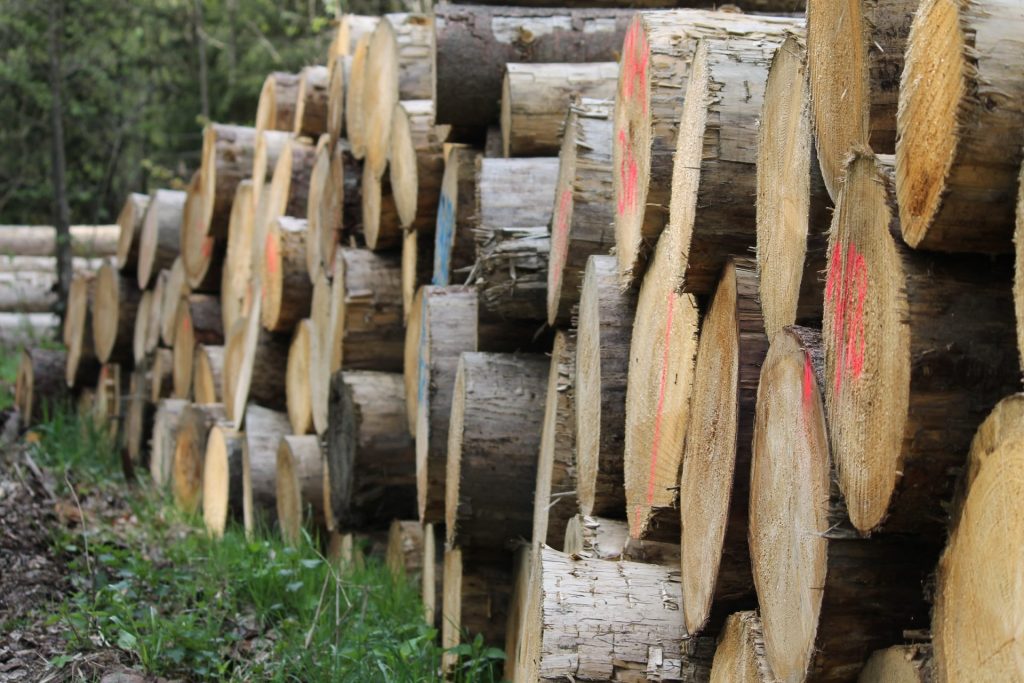
Source: Energy Portal of Serbia
Net-0-biomass is the name of RES Foundation’s annual conference organized with the aim of collecting inputs for a public policy platform intended for decision-makers about the potential of energy from biomass, as well as development partners in the Western Balkans. Conference participants had the opportunity to participate in three thematic sessions: on knowledge, economics and policies for Net-0-biomass. The Heinrich Bell Foundation and the E3 International company also took part in the organization.
The gathering informed about the future use of biomass energy according to the EU cascade principle and other sustainability models, as well as the role of biomass and reaching zero carbon emissions by 2050. The event was attended by national experts for biomass, forestry, energy transition and other experts from the Western Balkans, from Finland, Great Britain, as well as representatives of numerous institutions, including the EU Joint Research Council (JRC), the International Energy Agency (IEA), representatives of the European Commission and others.
According to the forest inventory from 2009, the forest area in Serbia is estimated at 29.1 percent, and the current forest area is estimated at 39.1 percent based on remote sensing methodology. This implies a significant increase in the volume of biomass, which should be the subject of a strong response by decision-makers.
Nino Lejava, director of the Heinrich Boell Foundation in Belgrade, opened the meeting and said that the goal of the conference is to better understand renewable energy sources in the Western Balkans. Heinrich Boell and the RES Foundation helped the municipality of Priboj switch from coal to wood chips and thus increased energy security and reduced air pollution. She referred to Bosnia and Herzegovina, where it was shown that illegal logging led to negative consequences for the environment, because wood is used as firewood, while the use of biomass is significantly less, and it is safe for the environment and sustainable.
Jasminka Young, co-founder of RES Foundation, says that by using biomass, they would reach Net Zero, which is necessary for dialogue with political decision makers on decarbonization. For the transposition of the RED 2 Directive, Serbia should: simplify the process of issuing permits, achieve progress in the introduction of a national scheme for the verification of sustainability criteria for biofuels and biomass fuels. The new RED 3 brings new obligations and focus on forest biomass, especially in relation to the National Energy and Climate Plan (NECP) process. The forest mass is still not part of the dialogue and decision-making within the framework of the NECP in the countries of the Western Balkans.
“Biomass is also an inescapable political issue and it will be difficult to realize the sustainability and bio-economical benefits of biomass,” Young pointed out.
Biomass sustainability can be included in scientific research, but it is also a very important social effort to reach a NET Zero system.
Knowledge of NET-0-Biomass
In the discussion about knowledge for NET-0-Biomass, Mersudin Avdibegović, a professor at the Faculty of Forestry in Sarajevo, emphasizes that there are more forests in BiH now than before, probably due to migratory processes.
In Bosnia and Herzegovina, there are 3.2 million hectares under forest, or 63 percent, which is the top in Europe. The estimate of the annual potential of biomass is 10.4 million tons of dry forest matter, but not all of it must be used. Seven million hectares of dry matter are used, five of which are used in processing and production. The largest part goes to traditional energy from firewood. Biomass is the largest percentage of energy from wood.
“There is a lot of unused biomass in our forests, that calls for action. The great potential of biomass is in private forests that are neglected”, said Avdibegović.
He emphasized that the driver of change in Bosnia and Herzegovina is green business, which requires greater involvement and political changes.
National forest inventory
Nenad Petrović, associate professor at the Faculty of Forestry in Belgrade, said that there has been a National Forest Inventory in Serbia since 2009. Another forest inversion was recently completed, which shows that the area under trees has increased and now the annual production is also higher.
“Forestry perspectives in Serbia are that we use biomass from existing forests and that they should be turned into areas that have potential. At the same time, we need to see what is the best way to use the biomass we get available – not only by burning wood, but by longer-term storage of the material. This would allow us to reduce the import of energy”, said Petrović and underlined the common characteristic of BiH and Serbia that biomass is in forestry, and that other sources are significantly less represented in both countries.
As he says, he would provide incentives for wood biomass as the cheapest way to replace fossil fuels, but also for business to release all barriers so that wood biomass finds its way and replaces fossil fuels.
Dušan Jović, director of the E3 International representative office, spoke about how necessary it is to reduce the pressure on the forest as a resource and diversify wood raw materials as much as possible.
“We tried to use the land in the mines in order to find a solution for the decarbonization process, and this initiative has a chance to come to life and to highlight the importance of biomass by raising energy crops.
This is Serbia’s oil,” said Jović.
He emphasized that the biomass market, which does not exist, needs to be developed and that it is necessary to invest a lot in the improvement of Serbia’s poor forests.
Dragoslava Stojiljković, a professor at the Faculty of Mechanical Engineering in Belgrade, says that Directive RED 3 indicates the direction of biomass use.
“In the RED 3 directive, the sustainability criteria are stricter and the ways of using biomass for the production of electrical and thermal energy in plants are stricter. The cascading approach brought by the Directive means that biomass is used in various processes in industry, not just as wood. Decarbonization also means that the industry takes a large part in the use of wood residues. In addition to forest management, it is necessary to look at the part that is used by industry and that should be used,” said Stojiljković.
According to her opinion, innovations in biomass utilization technology, increasing the awareness of the population and all participants in society should be strengthened. Science can help a lot, but this will not solve the problem of increasing scientific research. Transparency is key and joint creation of useful results with all interested parties, systemic approach and joint activity for biomass should be strengthened.
